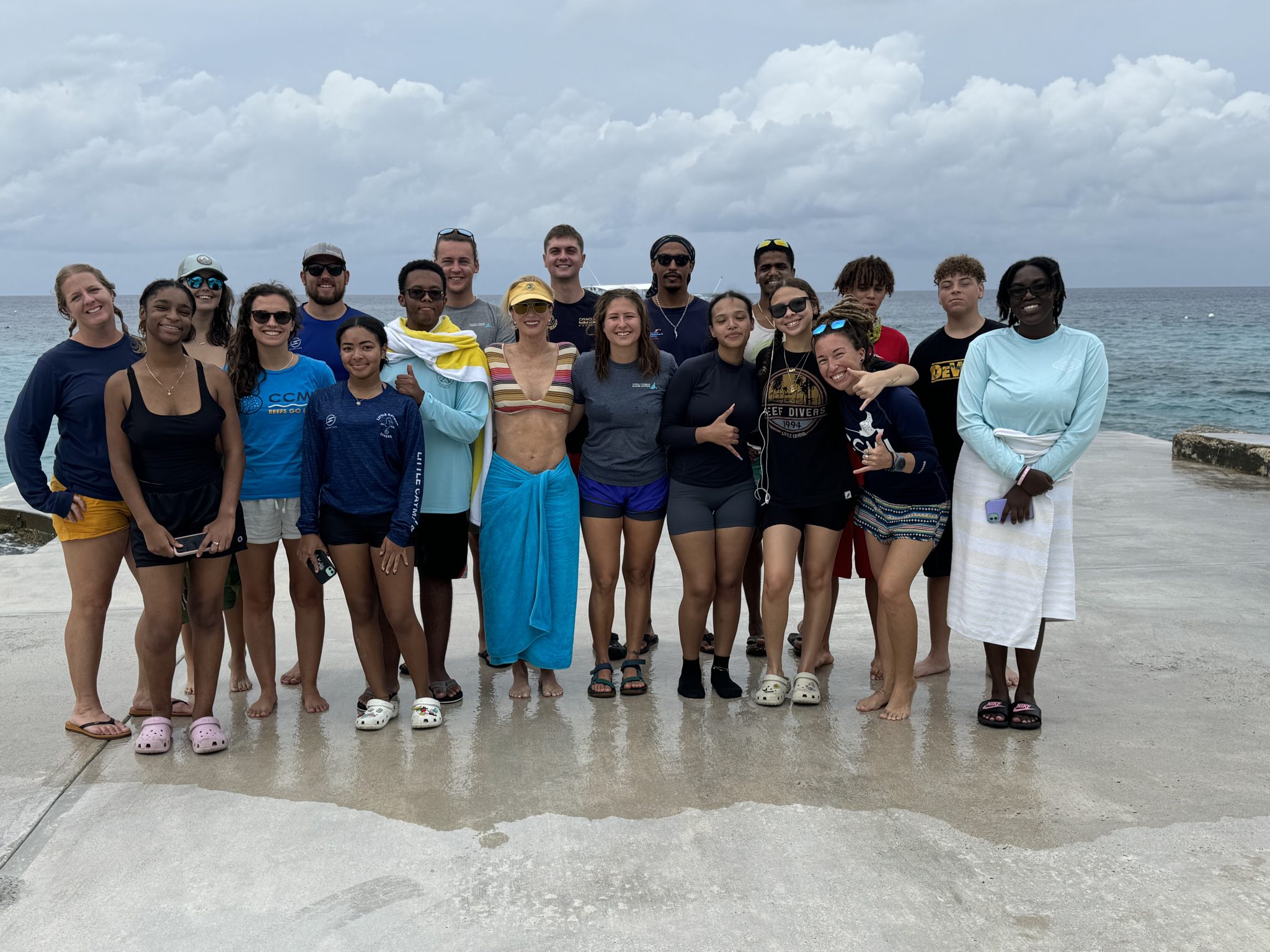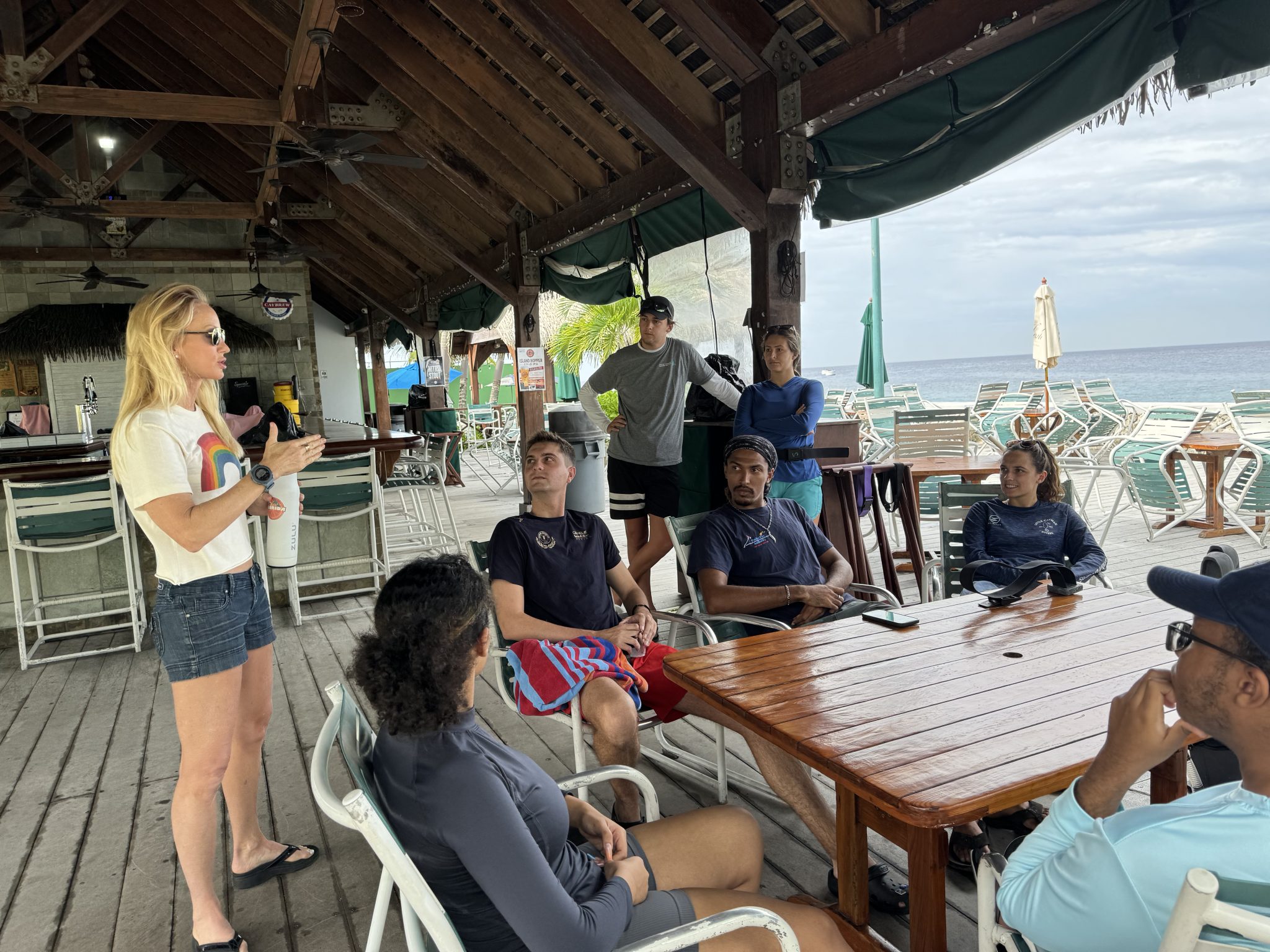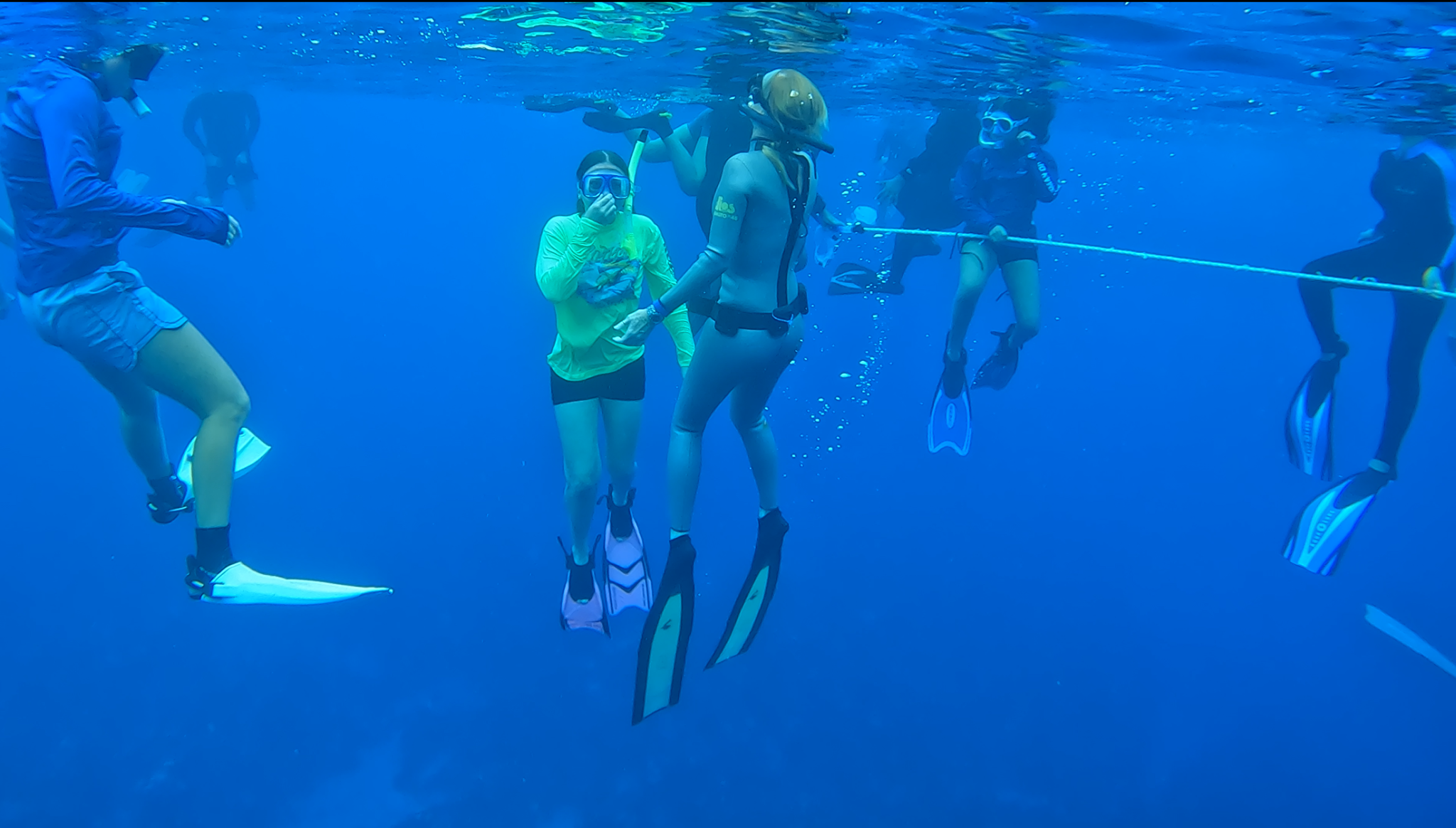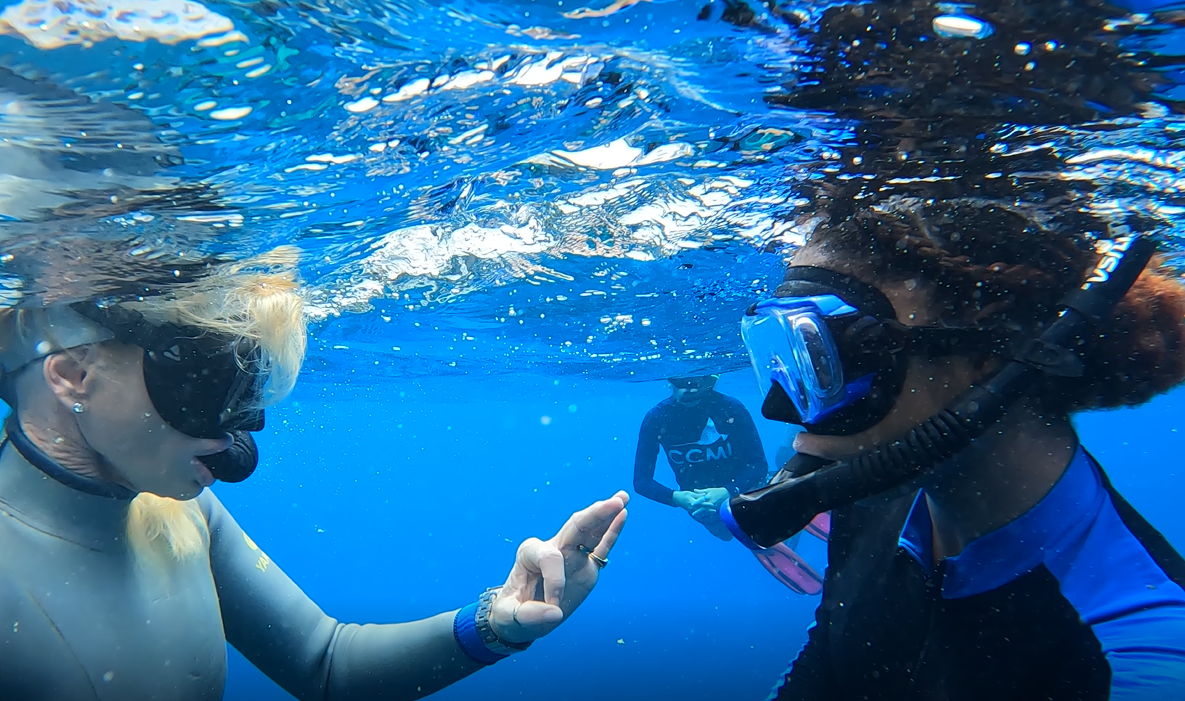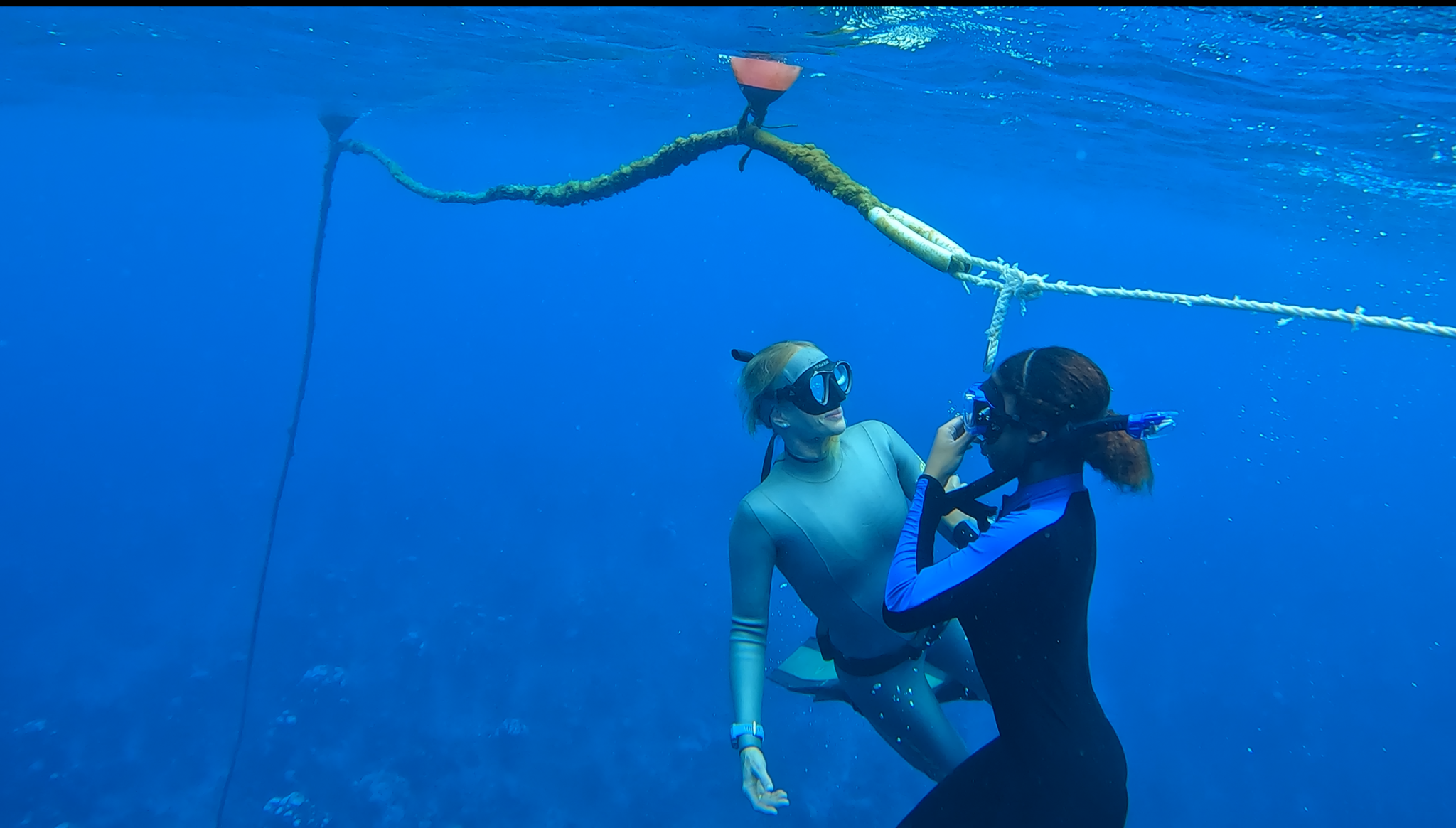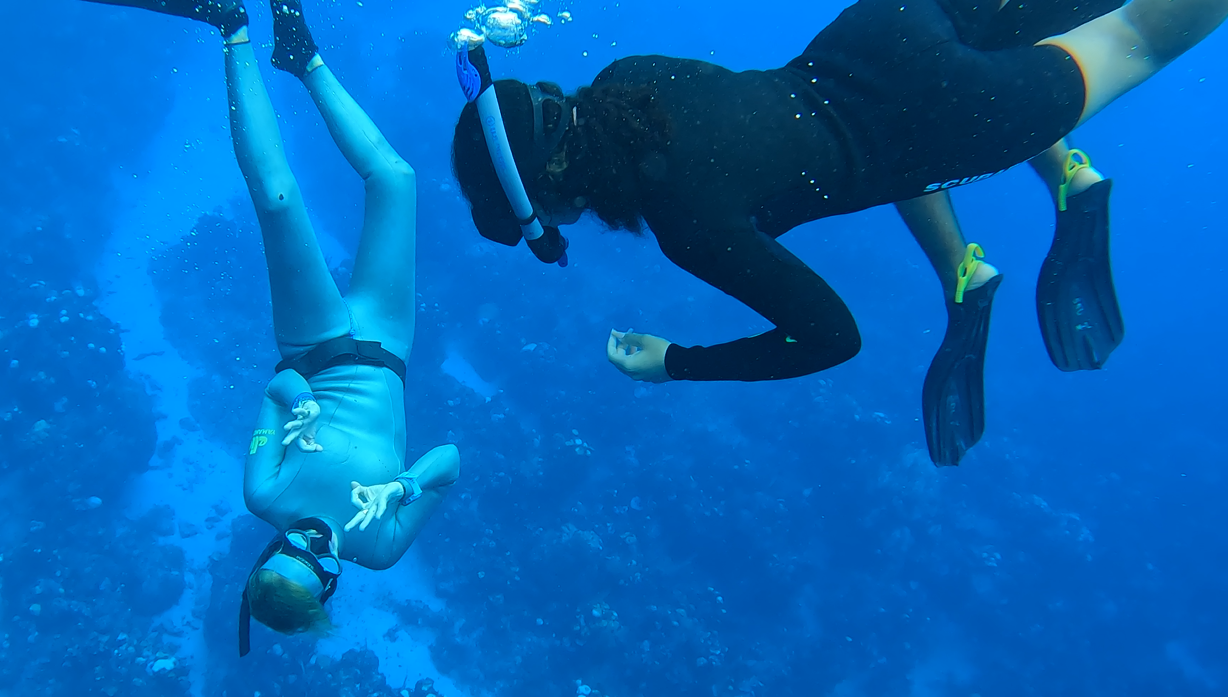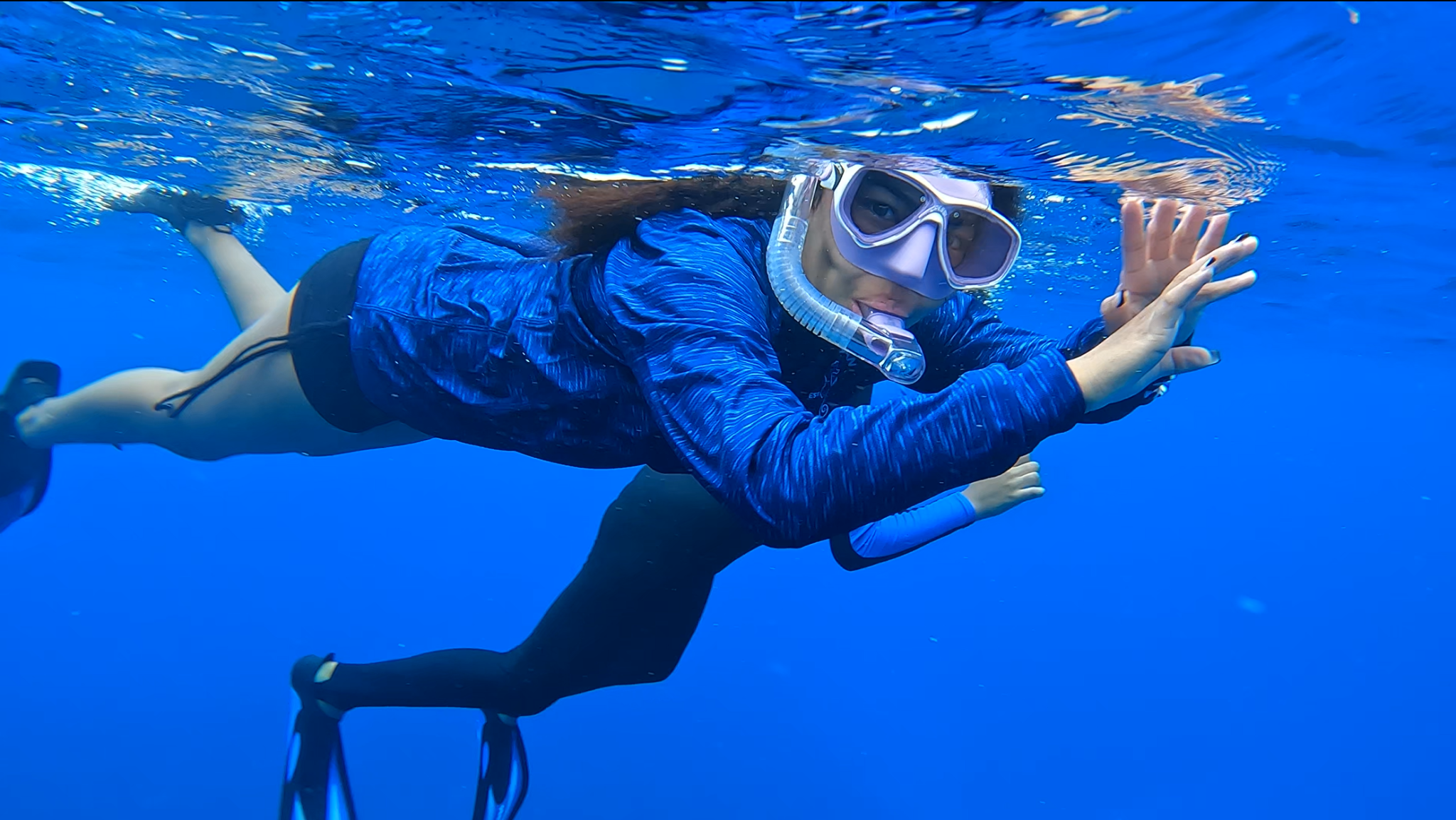Freediving Blogs
How can a breath-hold class help with SCUBA?
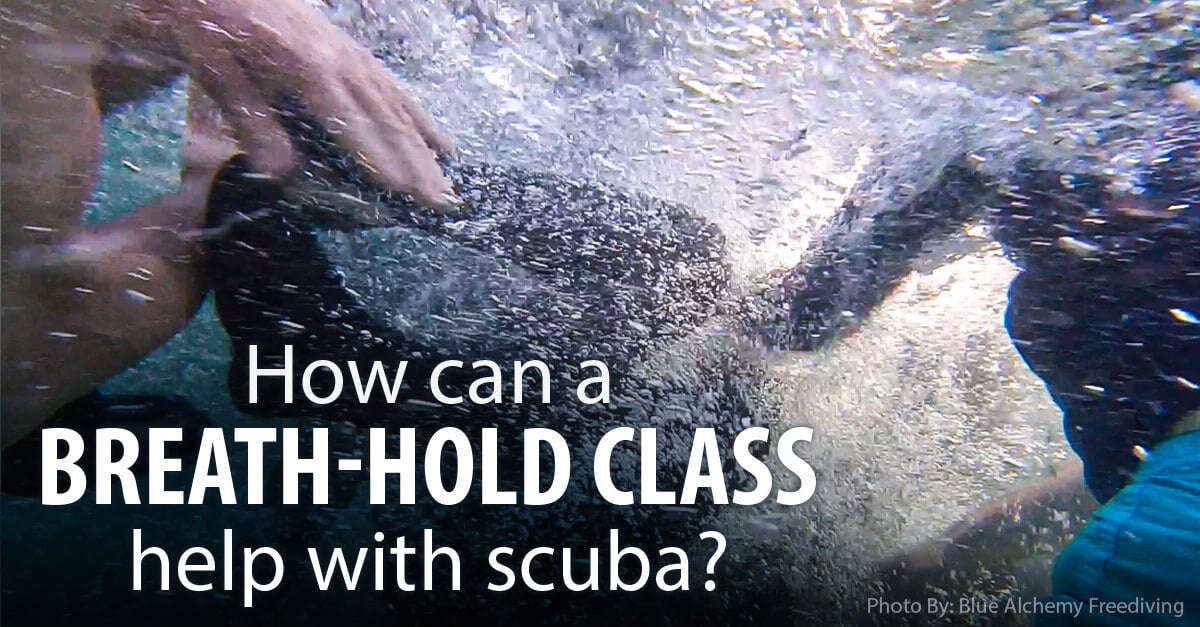
By Chris Bustad
Unless you have been under a rock, you have heard that freediving is growing. Classes are being offered all over. Maybe you have even thought about taking one and that’s great, you should! There is a lot you can learn about yourself in a freediver course and there are stress reduction and breathing techniques that will absolutely help your scuba abilities.
But what if there was a breath-hold course that wasn’t all about meditating?
A course that wasn’t about putting you in the most relaxed state you can get into before trying to hold your breath. One that sticks you into a high stress, high heart-rate environment and then tells you, “now it’s time to hold your breath!”
There is… it’s called Breath-Hold Survival.
This is a course that Kirk Krack, founder of Performance Freediving International, developed to fulfill a request from professional big wave surfers. From there, it morphed into a course that is used to teach US, Canadian, and British Special Forces what to do when going up is more dangerous than staying down and how to address the problem underwater.
This course has been used by athletes ranging from Red Bull and Oakley surfers, Racing Cup teams, and even snowboarders, skiers, e-gamers, and Olympic competitors. There are physiological reactions that occur within your body when you train breath-holding, such as splenic contractions, where the spleen will contract to expel older red blood cells into your circulatory system after as little as a one-minute breath-hold, giving you an advantage over athletes that don’t train this way. The result is similar to blood doping, but it is natural and not illegal!
So how can this help your scuba abilities?
Glad you asked! First, any in-water training you receive will make you more comfortable in the water. This will allow you to handle high stress situations without allowing them to become a problem. You will be more likely to remain calm and deal with the issue. Since this course specifically targets situations where “stuff” is hitting the fan, so to speak, this will help even more during an emergency. And, it’s all done without being able to breathe off your regulator. This can also help if you are getting in or out of the water in the surf zone and get knocked over or lose the regulator from your mouth.
Confidence in the water will make you more relaxed as well. As you know, the more relaxed you are, the less air you consume, the longer your dive will be. And, don’t forget about the breathing techniques I mentioned earlier! The more control you have over the way you breathe, the longer your dive will last.
The course breakdown
The Breath-Hold Survival course is a specialty that typically takes place over 4 days and is based on the PFI Intermediate Freediver course. There are 3 confined water sessions and two open water sessions. This class is available to anyone comfortable in the water with average swimming skills. There is also a pool only certification available if you don’t want to head out to open water.
Some of the skills you will be practicing include relaxed static breath-holds on a full breath (static is a breath-hold on the surface without moving), relaxed statics on an exhalation, and duress statics on full breath (getting tossed around like you are in the surf zone or a river). You will also learn safety techniques so that you can continue to practice with a trained buddy after the course, some entry techniques for cross-training with freediving, and more.
So, go take a Freediver or Breath-Hold Survival course and create more comfort in the water that will help you avoid a potentially serious situation altogether or have the tools in your toolbox to better handle one! See you in the water.
 To find out more about International Training, visit www.tdisdi.com.
To find out more about International Training, visit www.tdisdi.com.
Blogs
Freediver Christian Redl Sets His 13th World Record at Lake Neufeld

Freediving champion Christian Redl achieved his 13th world record at Lake Neufeld together with his teammates by completing 55 dives of 20 meters with just one single breath each, a feat that in total is comparable to the depth of the Mariana Trench! Within 4 hours and 26 minutes out of a planned total of 5 hours, the project was made possible thanks to the support of Cressi, which supplied high-quality equipment to Redl and his fellow athletes.

Cressi, the official sponsor of the project, has been working with Redl since the beginning of his career, establishing a relationship that goes beyond simple collaboration and has become a true friendship over the years. Cressi’s support has been fundamental to the success of this venture and this highlights the reliability and innovation of its products.

The aim of the dives was not only to break a new record but also to raise awareness of the pollution of our planet’s waters, a subject dear to both Redl and Cressi.
It remains to be seen whether Redl will continue its record hunt, but one thing is certain: with Cressi’s support, each new challenge will be met with the utmost quality and determination.
Check out all the latest freediving equipment from Cressi here.
Blogs
CCMI alumni learn to freedive from world record holder Tanya Streeter
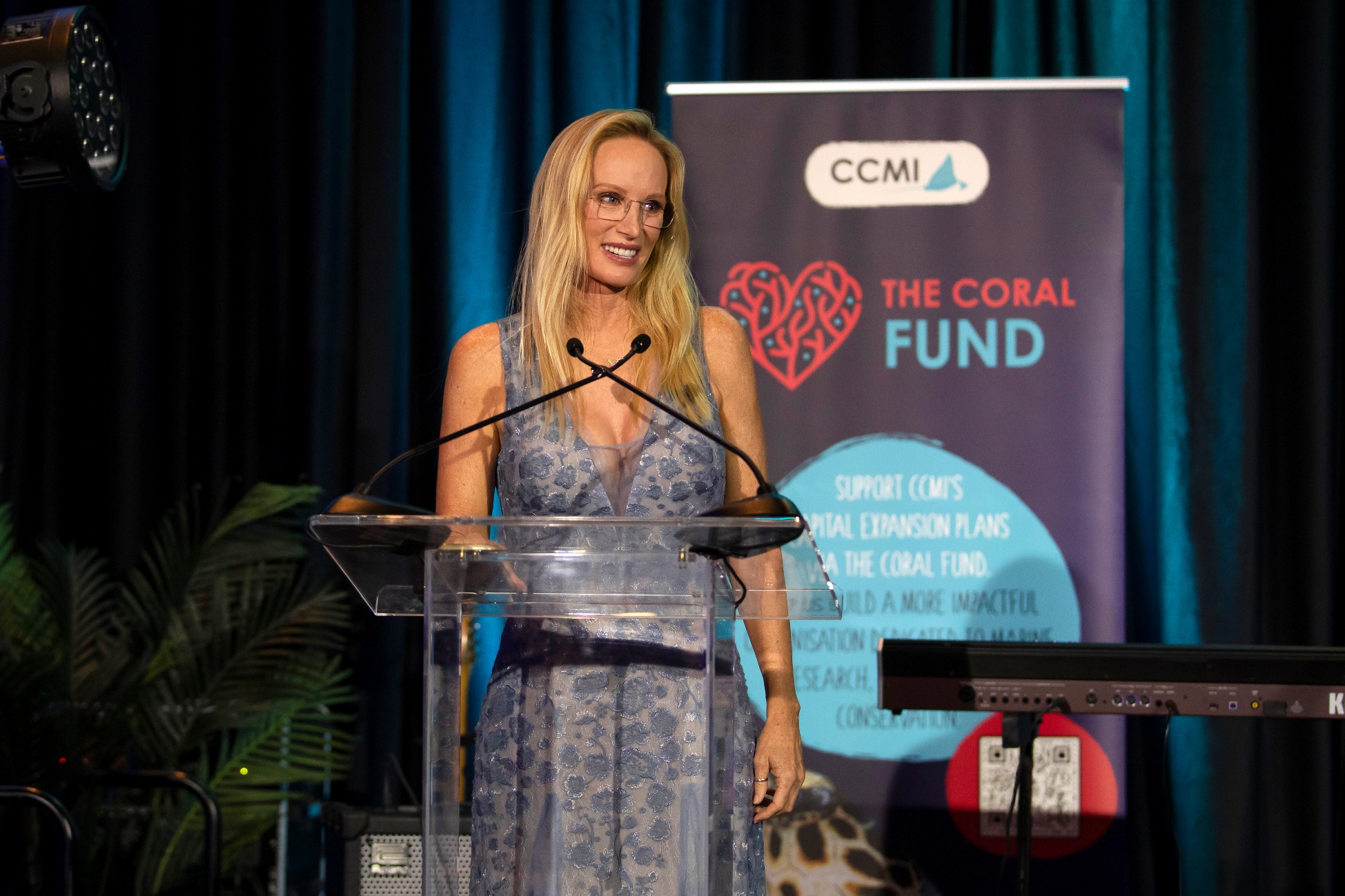
CCMI’s 25th anniversary celebrations included Tanya Streeter leading a freediving clinic for CCMI alumni, giving Festival of Seas keynote address
To help celebrate the 25th anniversary of the Central Caribbean Marine Institute (CCMI), the organisation enlisted the help of world record holding freediver and former Cayman resident Tanya Streeter. Invited to give the keynote speech at the annual Festival of Seas gala on 4 November 2023, Tanya eagerly agreed to also host a freediving clinic for young Caymanians who participated in education programmes at CCMI to give back to the Cayman community.
Returning to the island where she was born and raised, Tanya led a half-day freediving clinic at Sunset House with the support of Sunset Divers. CCMI education programme alumni were invited to register, and 11 Caymanians, ages 16-26 representing a span of 10 years of taking part in the range of CCMI education programmes, attended the clinic. Some of the alumni participated in more than one CCMI programme over the years, and several are now employed in a related industry in the Cayman Islands, a testament to the importance of CCMI’s scholarship opportunities for Caymanian students.
When asked what it meant to Tanya to host this freediving clinic in Grand Cayman, she said, “I cannot overstate what a huge personal impact it has on me to come back to have this opportunity to work with young Caymanians. They are associated with CCMI, so they know about the ocean and about how important ocean health is here for us. But to be able to connect with young people in a realm that I’m good at and is important to me, and to see them grow a little bit personally, is huge. It’s my absolute favourite thing to do!”
Called ‘the world’s most perfect athlete’ in 2002 by Sports Illustrated, Tanya discovered her record-breaking gift for freediving in 1997, and in the following decade broke 10 world records, many of them previously held by men. To this day, she still holds the longest-standing world record in the sport, having dived on a single breath to a depth of 525ft/160m in the No Limits discipline off the coast of the Turks and Caicos Islands in August 2002. If anyone is qualified to help others begin their journey into freediving, Tanya Streeter is at the top of the list.
The clinic started with a briefing and a meditation session, led by Tanya, to get the mind and body ready to freedive. Participants practiced meditation exercises, breathing techniques to help open the diaphragm and work the lungs and muscles, and important stretches. Next, Tanya gave an in-water safety briefing, which emphasized buddy pairs, proper in-water breathing techniques, and not pushing oneself too hard. In total the group spent about 90 minutes in the water in selected buddy pairs practicing freediving while under the watchful eye of CCMI’s in water safety teams. Tanya spent several moments with each freediver individually, observing them, and offering underwater support and topside coaching. After everyone had one-on-one coaching time with Tanya, the group snorkeled to the famous Sunset House mermaid statue, practicing their new, finely tuned freediving skills to dive to the mermaid (a depth of about 45-50 ft).
Before the clinic, participants had a wide range of skills and experiences in the water. Tanya provided one-on-one coaching, speaking to each person’s comfort level. One participant said it felt like it was only the two of them in the ocean. Tanya’s constructive corrections in the water helped participants realize instant success in their form and dives!
The following night, Tanya gave the keynote address to the more than 350 attendees at CCMI’s Festival of Seas gala at the Kimpton Seafire Resort & Spa. A passionate voice for the preservation of the marine environment, Tanya announced she would serve as a CCMI ambassador, focusing her energy on engaging the youth and young people in efforts to protect the ocean. She left attendees with the realization that the connection we have with the ocean is meaningful, and it paves the way to create protections and policies that will sustain the marine environment for the future.
While Tanya enjoys using her platform to communicate about the importance of marine conservation, she is very passionate about working with youth and introducing them to the ocean through freediving. “To see those barriers people are facing and to push through and grow even in a hour, and hour and a half. That’s huge. It’s absolutely my favourite thing to do.”
For more information about CCMI, please visit www.reefresearch.org.
About CCMI
CCMI is a not-for-profit organization founded in 1998 to protect the future of coral reefs, envisioning a world with vibrant oceans and healthy coral reef ecosystems. We seek to be the Caribbean’s premier marine research institute by delivering cutting edge research, transforming conservation strategy and developing education programmes of excellence – discovering and promoting real solutions to declining ocean health. Our plan is to invigorate key species and understand key ocean processes that drive reef resilience. We support early career scientists who are INNOVATING ways to improve coral reef health. We are TRANSFORMING conservation strategy and work to inspire the CHANGE that is needed to achieve our mission. CCMI are PIONEERS in the region working to reverse the declines of coral reefs.
-

 News2 months ago
News2 months agoIconic SS United States to become the World’s Largest Artificial Reef
-

 News3 months ago
News3 months agoBook Review – 52 Assignments: Underwater Photography
-

 Gear News3 months ago
Gear News3 months agoDYNAMICNORD – New German diving brand enters the British market
-

 News3 months ago
News3 months agoExploring Cenote El Pit: A Diver’s Dream
-

 Gear News3 months ago
Gear News3 months agoTry BARE drysuits (and maybe even win one!) this Friday with Sea & Sea at North West Dive Fest
-

 Marine Life & Conservation3 months ago
Marine Life & Conservation3 months agoBook Review: Coral Triangle Cameos
-

 Blogs2 months ago
Blogs2 months agoDive the Egyptian Red Sea this Autumn with Regaldive
-

 News3 months ago
News3 months ago2024 Ocean Art Underwater Photo Competition Announced















